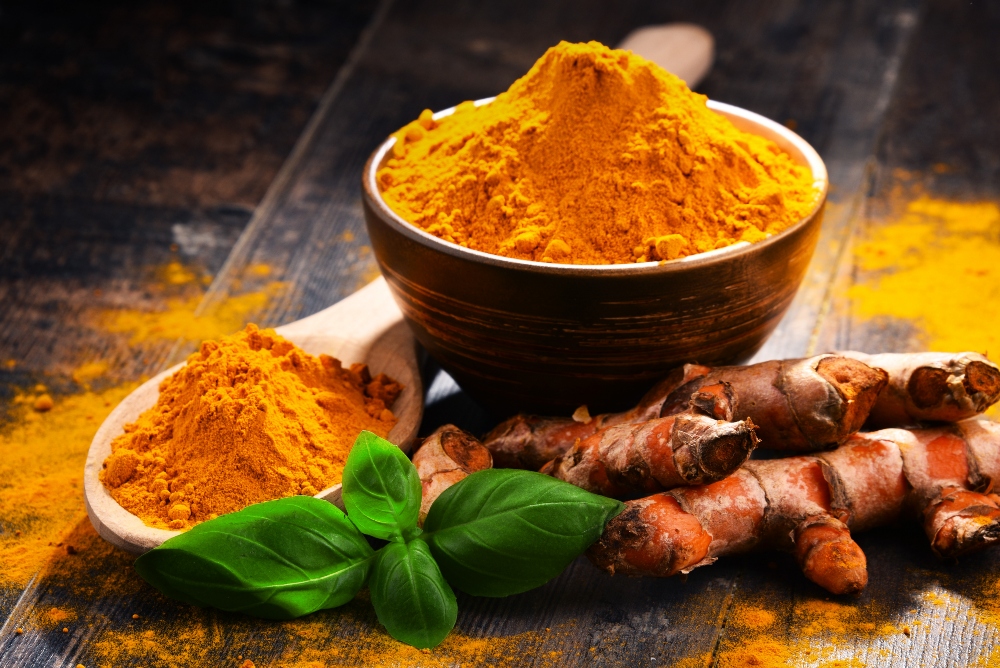
Turmeric has several therapeutic characteristics, some of which include being an anti-inflammatory, anti-fungal, anti-bacterial, and anti-viral agent. Research published in Nutrition Today connects this spice’s protective properties to the potential prevention and treatment of major health conditions such as arthritis and type 2 diabetes. A 2022 review adds cancer and even depression to this list.
If your patients are taking a turmeric supplement to gain benefits such as these, yet not seeing positive effects, the problem may lie in the supplement they’re taking. More specifically, if the supplement does not contain any bioavailability enhancers, patients may not be experiencing turmeric’s full effects.
Turmeric’s low bioavailability rate
Turmeric is known for its low bioavailability in humans. Research published in the journal Nutrients explains that this is due, in part, to the small intestine only absorbing minimal amounts of this substance. The liver metabolizes oral turmeric during the digestive process as well, weakening its bioavailability even more.
The bioavailability of oral turmeric curcuminoids is also reduced due to their rapid elimination and generally being metabolized quickly. Some studies suggest that gender can also impact its availability rates, with women experiencing more efficient absorbability than men.
If turmeric is not adequately absorbed, patients lose out on its many healthful nutrients. The U.S. Department of Agriculture (USDA) indicates that one teaspoon of turmeric provides:
- 04 mg calcium
- 65 mg iron
- 24 mg magnesium
- 97 mg phosphorus
- 4 mg potassium
Turmeric also contains trace amounts of zinc, copper, manganese, selenium, vitamin C, and numerous B vitamins. Being able to absorb all the nutrients that turmeric contains can help improve its effects.
Methods for enhancing turmeric bioavailability
When used as a spice, turmeric’s bioavailability can be improved by combining it with certain foods, such as eggs and vegetable oil. Even then, its bioavailability may not improve enough to be therapeutic. For instance, when mixed with yogurt, turmeric’s bioaccessibility was still only approximately six percent.
For patients interested in increasing their turmeric intake via a dietary supplement, several bioavailability enhancers exist for this form of consumption. One method found to have positive effects is combining it with piperine, the main active ingredient in black pepper.
An article in the Journal of Physical Chemistry reports that combining these two substances can increase the bioavailability of curcumin in turmeric 20-fold. It does this by forming hydrogen bonds with curcumin, thus improving its metabolic transport, and also inhibiting enzymes involved in the metabolism of this substance.
Another way to enhance the bioavailability of turmeric is with bromelain. Bromelain is a group of enzymes found in the stem and fruit of pineapple plants that are associated with their own health benefits. Among them, according to a 2019 review, are helping to relieve osteoarthritis, diarrhea, and cardiovascular disorders. The benefit most impactful to turmeric is bromelain’s ability to enhance the absorption of other substances.
A 2021 summary of bromelain’s therapeutic and clinical effects further indicates that this substance has a high bioavailability rate without losing any of its active compounds. This highlights the power of bromelain to survive the digestive process.
Finding a turmeric supplement with greater bioavailability
One way for patients to get as much of the turmeric they consume as possible is to find a dietary supplement that contains these bioavailability-enhancing ingredients. Read the label to discover if it contains piperine or bromelain. Some supplements include both, offering maximum turmeric bioavailability.
It’s also beneficial to select a supplement with 95% pure curcumin. This indicates that the product contains a high concentration of the active ingredient in turmeric, potentially increasing its positive effects.
Dee Cee Laboratories, Inc., offers chiropractic professionals access to Turmeric Extract, a dietary supplement that utilizes both black pepper extract (BioPerine) and bromelain for improved absorption rates. This supplement is also standardized to contain 95% curcumin, enhancing its antioxidant and anti-inflammatory properties.
All Dee Cee Laboratories supplements are manufactured in an FDA Registered Facility using Good Manufacturing Practices. They also conform to United States Pharmacopeia (USP) standards for weight and disintegration, the latter of which also maximizes bioavailability.


